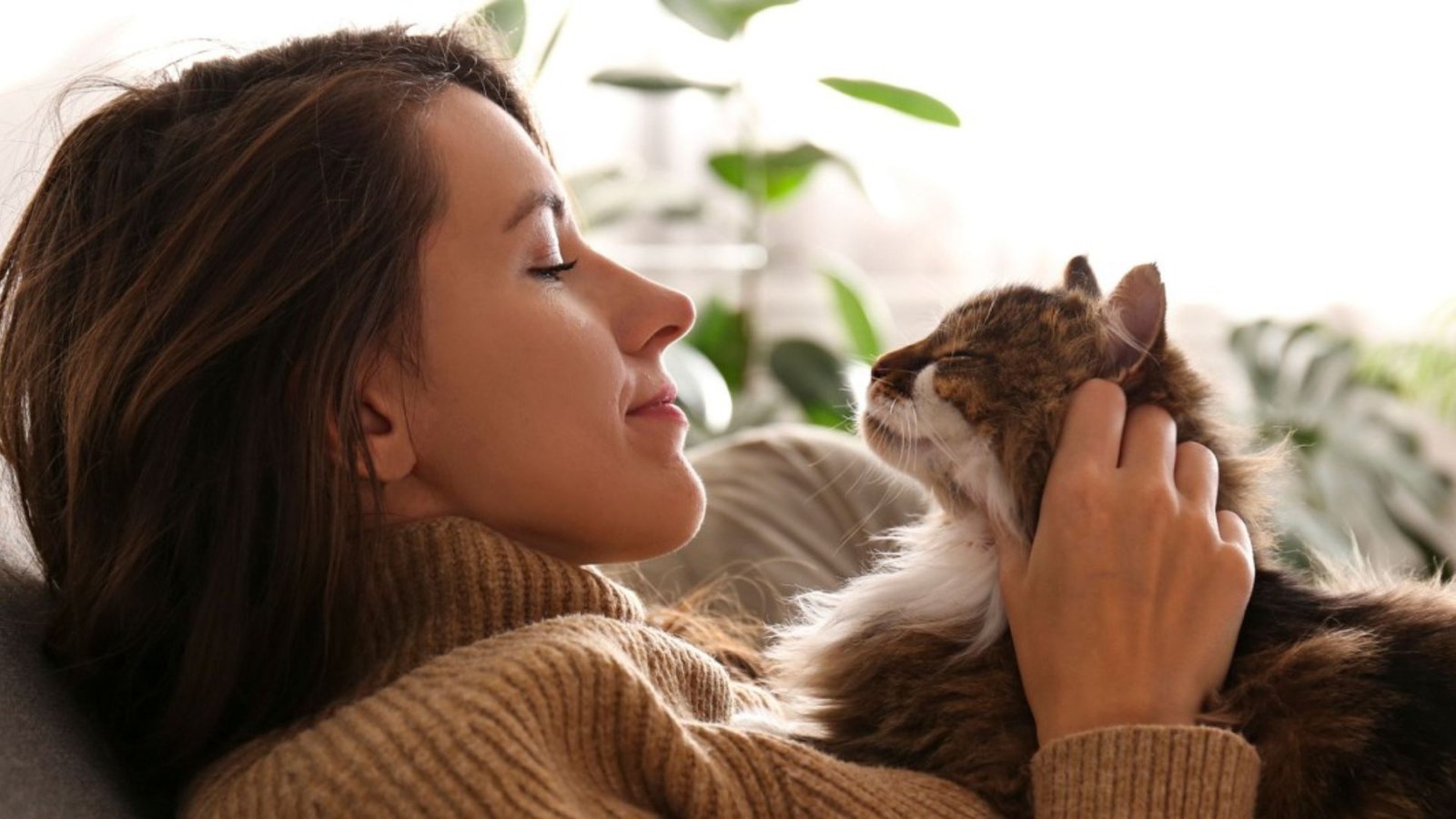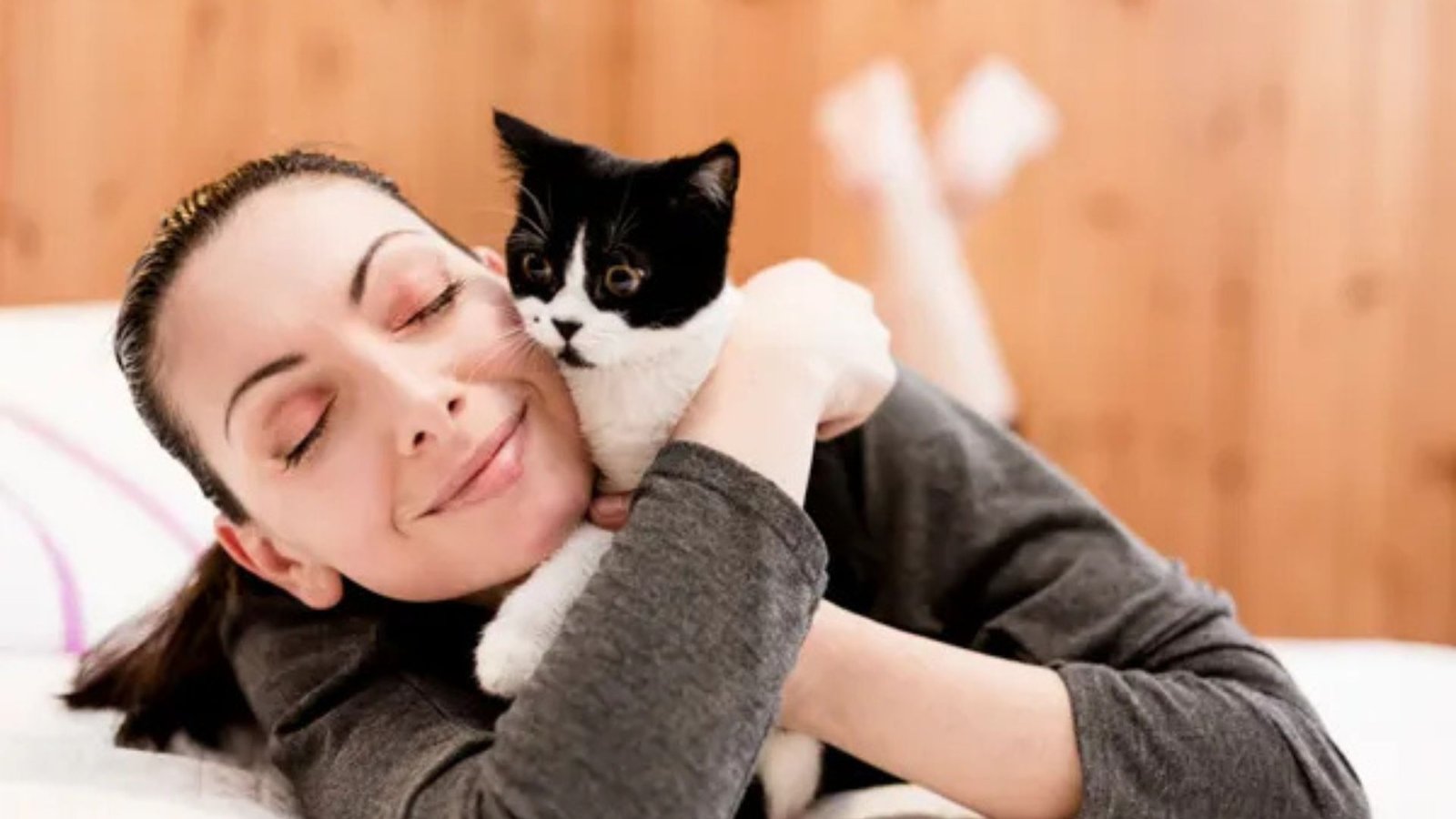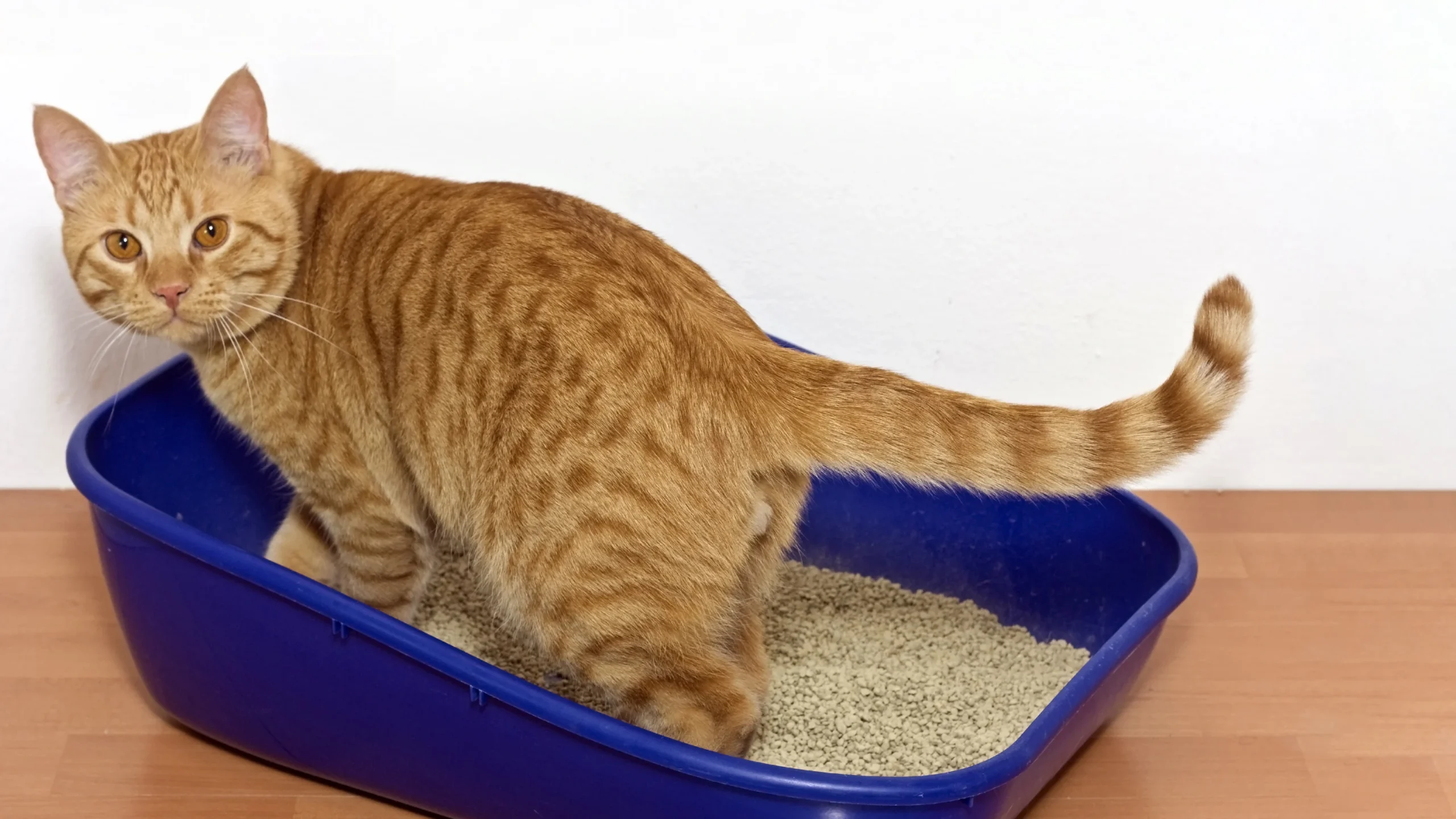Living with a cat can bring much more than just companionship and fun. Cats have a unique ability to help with stress and anxiety, offering comfort and emotional support in a way that many other pets can’t. Whether you’re having a tough day at work or feeling anxious about life’s challenges, spending time with your cat can work wonders for your mental health. In this article, we’ll explore how cats can reduce stress and anxiety and improve overall well-being.

1. The Power of Petting
One of the simplest ways that cats help with stress and anxiety is through the act of petting. Studies have shown that petting a cat can trigger the release of “feel-good” hormones, like oxytocin, which help reduce feelings of stress and anxiety. As you gently stroke your cat’s soft fur, your heart rate slows down, and your muscles relax. This process, known as “the relaxation response,” can be a soothing remedy for a stressful day.
The rhythmic motion of petting a cat is calming, allowing you to focus on the present moment and forget about your worries. Cats instinctively know how to be gentle and affectionate, making them excellent stress-relievers.
2. Cats Provide Emotional Comfort
Cats are naturally independent, but many also form deep bonds with their owners. Their quiet companionship can provide emotional comfort, especially during difficult times. If you’re feeling anxious, a cat will often curl up beside you, offering a calming presence. Their soft purring and gentle demeanor can have a grounding effect, helping to reduce negative emotions.
For people who live alone, cats can provide much-needed emotional support. Just having a cat near can make you feel less lonely and more connected. Cats have a unique way of sensing their owners’ moods and can often provide comfort when you need it most.
3. Purring Calms the Nervous System
The sound of a cat purring has a scientifically proven calming effect on humans. When a cat purrs, it emits a low-frequency sound that can reduce stress levels and lower anxiety. This soothing purring vibration is said to help relax the nervous system, lower blood pressure, and even promote healing in the body. It’s no surprise that many people find the sound of a cat purring incredibly calming.
If you’re feeling anxious or stressed, simply sitting with your cat and listening to their purrs can have an immediate positive effect. It’s like a natural form of therapy that helps you feel at ease and more centered.
4. A Distraction from Worry
One of the most effective ways to manage anxiety is to shift your focus away from stressors. Cats can provide the perfect distraction. Watching a cat play or interact with their environment can quickly take your mind off of your worries. Whether it’s chasing a toy, pouncing on a shadow, or simply observing their quirky behaviors, cats bring joy and wonder into everyday life.
Engaging with your cat through play or simply watching them do something amusing helps ground you in the present. This momentary distraction can relieve the constant loop of anxious thoughts, offering a temporary break from overwhelming feelings.
5. Cats Encourage Routine and Structure
Living with a cat brings structure to your day. Cats thrive on routine, and this can have a positive effect on their owners’ mental health. By feeding your cat, playing with them, and ensuring they are taken care of, you create a sense of purpose and responsibility. This routine can help people with anxiety feel more in control and reduce feelings of chaos.
A daily routine can also act as a stabilizing force, helping to keep your mind focused and reduce the unpredictability that can often cause stress. Knowing that you have a responsibility to your cat can provide a comforting sense of order during difficult times.
6. Physical Touch for Comfort
The simple act of physical touch can be incredibly soothing for people with anxiety or stress. Cats love to cuddle, and their warm, soft bodies can be a source of comfort. Whether it’s sitting on your lap while you read a book or curling up next to you while you watch TV, a cat’s presence can help reduce feelings of loneliness and anxiety.
The physical act of holding or cuddling a cat increases oxytocin levels in both you and the cat, promoting feelings of bonding, safety, and trust. This type of affection can be deeply calming, helping to create a sense of peace in your environment.
7. Cats Can Help with Loneliness
Loneliness is a common cause of stress and anxiety. Cats, being independent but affectionate, offer a unique balance of companionship without overwhelming their owners. They are always there when you need them but also allow for space when needed. The non-judgmental nature of cats makes them excellent companions for people who feel isolated or alone.
Having a cat to care for can also reduce the feeling of emptiness that often accompanies loneliness. Cats have a way of filling a home with warmth, love, and a sense of purpose, all of which can help ease the emotional burdens of living alone.
Conclusion: Cats as Natural Stress Relievers
Cats offer much more than just their adorable faces and playful antics. They are powerful natural stress relievers that provide emotional support, physical comfort, and companionship. Whether through petting, listening to their soothing purring, or simply enjoying their presence, cats help reduce anxiety and improve overall mental well-being.
If you’re feeling stressed, consider spending some quiet time with your cat. Their calming effect can help you feel more relaxed, grounded, and at peace. In a world full of stress, having a cat by your side may be one of the best ways to promote emotional healing and balance.




